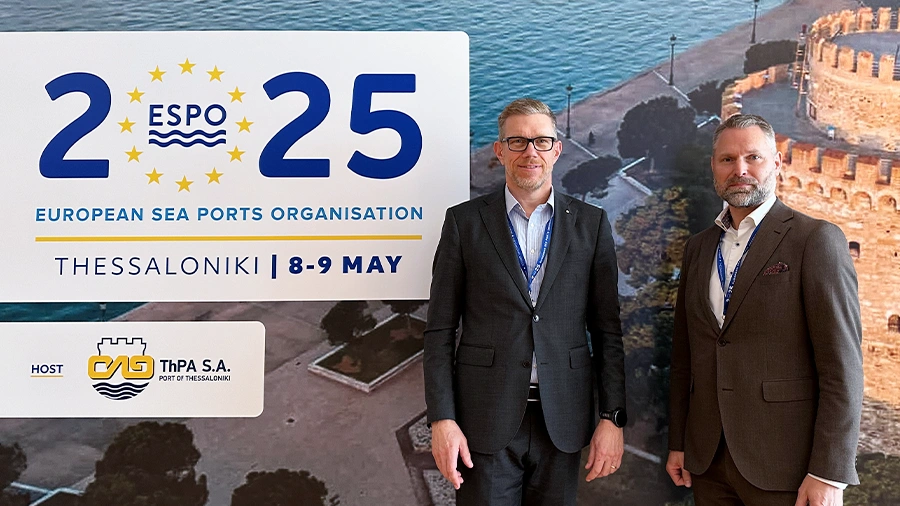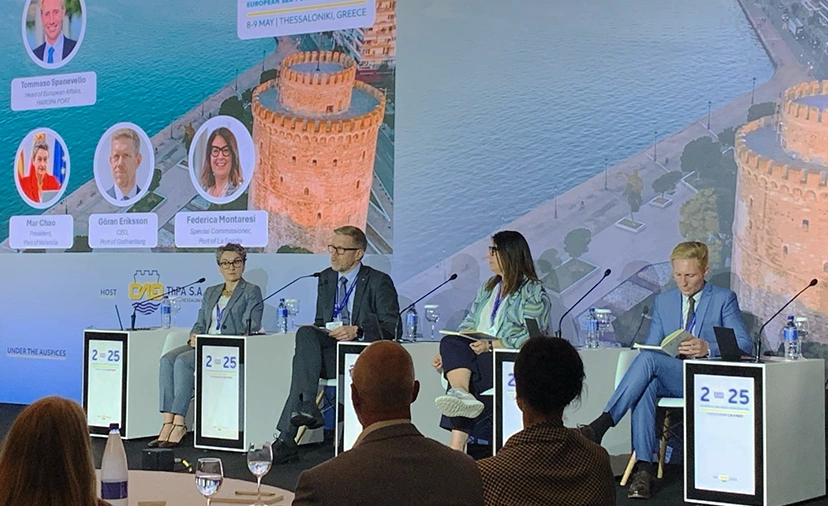The EU port strategy takes shape – Port of Gothenburg is already ahead

The European Commission speaks of “port competitiveness” – we’ve already built that vision
Port of Gothenburg CEO Göran Eriksson participated in a panel discussion on the role of ports in a changing Europe and also had the opportunity to discuss port issues directly with EU Commissioner Apostolos Tzitzikostas, who now leads the development of the new EU port strategy.
That the Commissioner is now highlighting the concept of “EU Port Competitiveness” clearly shows that Gothenburg’s long-term efforts align with the new strategic direction.
“It fits very well with our vision. What we have worked towards – a competitive, green, and innovative port – is now also at the top of the EU’s agenda. It shows we’ve been on the right track for a long time, and perhaps even helped put the issue on the map,” says Göran Eriksson.
From IMO to the EU – Port of Gothenburg connects the levels
The EU’s new port strategy is taking shape at a time when international legislation is also evolving rapidly. As the largest export port in Northern Europe, the Port of Gothenburg plays a crucial role: acting as a bridge between international climate policy and European infrastructure development.
“We can and want to connect the ambitions from the IMO with the EU’s work, so we get a clear and effective framework from Brussels all the way to the quay at Skandiahamnen,” Göran Eriksson says.
Competitiveness and climate – both must be at the core
As ports are now asked to lead Europe’s green transition, one might think competitiveness and sustainability are at odds. The Port of Gothenburg proves the opposite. With fossil-free onshore power, efficient rail solutions, digital vessel call processes, and future-proofed capacity, we are living proof that climate and competitiveness can be strengthened simultaneously.
“We want to grow – but we will grow sustainably. It’s not a choice between climate or competition. It’s both. And that is exactly what the EU’s strategy must now embrace,” Göran concludes.
